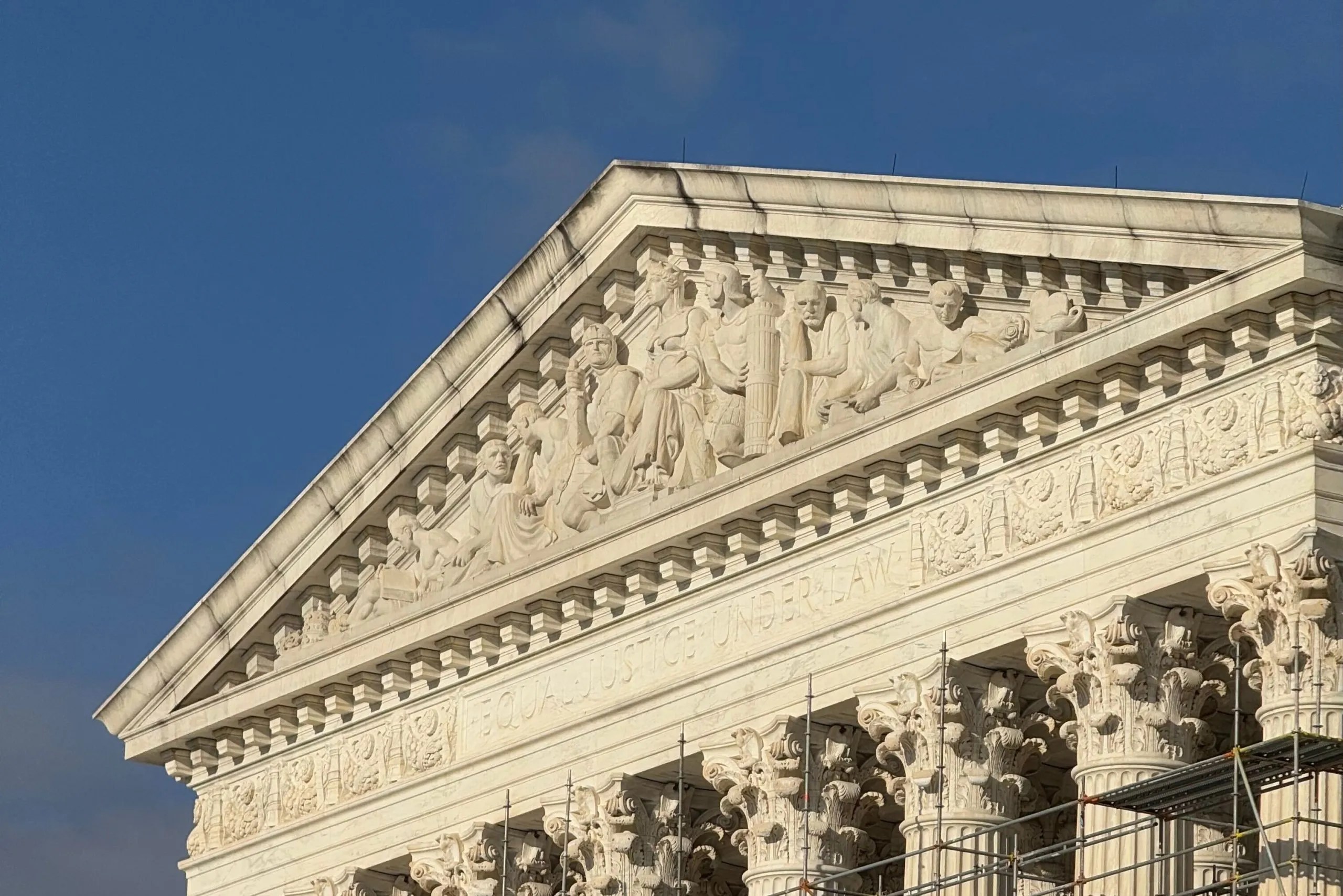SCOTUStoday for Tuesday, September 30


Justice Ketanji Brown Jackson’s investiture ceremony took place on this day in 2022, but she actually had been serving on the court for three months by that point after taking the Constitutional Oath and Judicial Oath on June 30. As the most junior justice, she’s in charge of taking notes during the justices’ private conferences, among other tasks.
Morning Reads
- Federal courts may quickly face curtailed operations if government shuts down (Devin Dwyer, ABC News) — Federal courts may be forced to “quickly curtail operations” if the funding battle in Congress leads to a government shutdown this week, but the Supreme Court “would be largely unaffected,” according to ABC News. “In the event of a lapse of appropriations, the Court will continue to conduct its normal operations,” Supreme Court spokeswoman Patricia McCabe told ABC. “The Court will rely on permanent funds not subject to annual approval, as it has in the past, to maintain operations through the duration of short-term lapses of annual appropriations.” Lower courts, on the other hand, may have to delay trials and other hearings, because they have fewer funds on hand due, in part, to “years of tighter budgets and rising costs.”
- The Roberts court turns 20 (Kelsey Reichmann, Courthouse News Service) — Monday marked 20 years since Chief Justice John Roberts became the leader of the Supreme Court. And as the Roberts court enters its third decade, it’s preparing to take on a number of major issues, including “elections, free speech and executive authority,” reports Courthouse News Service. “While the justices have pushed back against claims of judicial activism, the Supreme Court 2025 lineup presents a slew of opportunities for the Roberts court to overturn precedent and issue decisions that could ripple across the U.S. for the next 20 years.”
- ‘The Supreme Court got it wrong’: SC Attorney General calls for death penalty for child rapists (WIS News 10 Staff) — Nearly half of state attorneys general sent a letter to the Justice Department and White House General Counsel this month in which they called on federal officials to support their effort to challenge a 2008 Supreme Court decision that “barred states from imposing the death penalty in cases of child rape where the victim did not die,” according to WIS News 10 in South Carolina. That decision, in Kennedy v. Louisiana, said that imposing the death penalty in such cases violates the Eighth Amendment’s prohibition on cruel and unusual punishment.
- Ex-Michigan football players vow to appeal after NIL lawsuit against BTN, NCAA dismissed (Tony Garcia, Detroit Free Press) — It’s been four years since the Supreme Court shook up the world of college sports by holding that the NCAA had violated antitrust laws by limiting the kinds of compensation its schools could provide to student-athletes. That decision cleared the way for college athletes to be paid for their name, image, and likeness, or NIL, rights, while also prompting a new wave of lawsuits. One such suit brought by 300 former Michigan athletes against the NCAA and Big Ten Network over the use of their NIL rights was recently dismissed by a district court, which determined that “it fell outside of the statute of limitations,” according to the Detroit Free Press. The athletes’ attorney has vowed to appeal all the way “to the Supreme Court if necessary.”
- The Roberts Court Turns Twenty (Steven Vladeck, One First) — Steve Vladeck also covered the first 20 years of the Roberts court on Monday and contended that the chief justice is not doing enough to steer the court to more stable ground as it struggles with a reputational crisis. “Roberts could move the Court by voting differently in some of these cases; he has chosen not to. Roberts could speak up more about the unprecedented institutional (and physical) threats to the judiciary; save for one cryptic statement about impeachment, he has chosen not to. Roberts could write separately in cases in which he believes he is obliged to grant emergency relief to the Trump administration but doesn’t wish to condone its (public or litigation) behavior; he has chosen not to,” Vladeck wrote.
SCOTUS Quick Hits
- On Monday, Venezuelan citizens living in the United States urged the court to prevent the Trump administration from ending their protected status in a filing on the interim docket.
- Also on Monday, the justices gathered for their “long conference” to address cert petitions that piled up during their summer recess. They are expected to grant between five and 15 of these cases, and they will announce these grants sometime in the next few days.
- The first day of the 2025-26 term is next Monday, Oct. 6. Throughout this week, we will be providing previews for those cases to be argued on Oct. 6, 7, and 8.
A Closer Look: Politics and the Court
In recent years, the Supreme Court has become increasingly viewed by the public as overly political. But the Burger court of the 1970s shows that the idea of the court as a political institution is hardly anything new.
Chief Justice Warren E. Burger was appointed by President Richard Nixon in 1969. The two had a pre-existing friendship, which evolved into frequent chats, taped by Nixon, in which both men discussed Nixon’s vision for remaking the bench. From 1971 to 1973, over two dozen chats were recorded between Burger and Nixon, many kicked off by the chief.
In a June 1972 call, for example, Burger explained to Nixon that he planned to narrow the liberal Warren court’s precedents without explicitly overturning them. One of the exchanges also involved the obscenity ruling in Miller v. California. On Jan. 2, 1973, Nixon asked about the pending case, to which Burger said, “I’m coming out hard on it.” In a 5-4 decision later that year, written by Burger, the court established a three-part test for determining whether expression constitutes obscenity.
According to a former Nixon aide, Burger and Nixon also discussed civil rights and school busing cases, with Burger at times predicting how the court would vote.
Despite all this, Burger nevertheless helped doom Nixon’s presidency. In the 1974 case of Nixon v. United States, a unanimous court, with Burger writing, held that Nixon could not claim executive privilege to withhold his tape recordings. And, indeed, as noted by Michael Graetz and Linda Greenhouse, “The story of the communication between Nixon and Burger … came to light only because of the public release of Nixon’s tapes.”
On Site
From Amy Howe
Venezuelans Fight to Keep Protected Status
Lawyers representing Venezuelan citizens living in the United States under a program that provides them with a safe harbor here urged the Supreme Court on Monday to leave in place an order by a federal judge in San Francisco that temporarily bars the Trump administration from ending their protected status under that program. In a 40-page filing, UCLA law professor Ahilan Arulanantham wrote that the order “has provided respite” from the harm caused by an earlier order by the Supreme Court “by restoring the status quo. Disturbing it now will cause massive injuries to” the challengers “and their loved ones, including many American children.” Read Amy’s story on the filing for more context.
Birthright Citizenship’s Path Back to SCOTUS
As noted in yesterday’s newsletter, the Trump administration has asked the Supreme Court to decide whether to end birthright citizenship. In addition to reporting on the administration’s petition, Amy wrote about the many lawsuits and lower court rulings that preceded it. Read Amy’s full analysis here.
Posted in Featured, Newsletters

